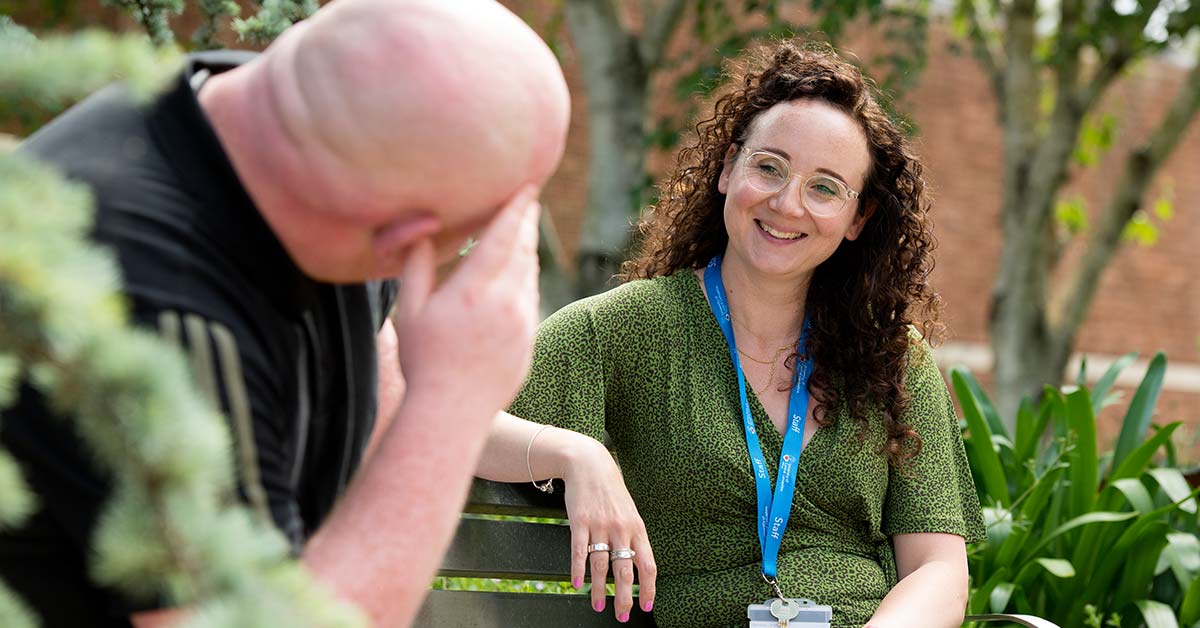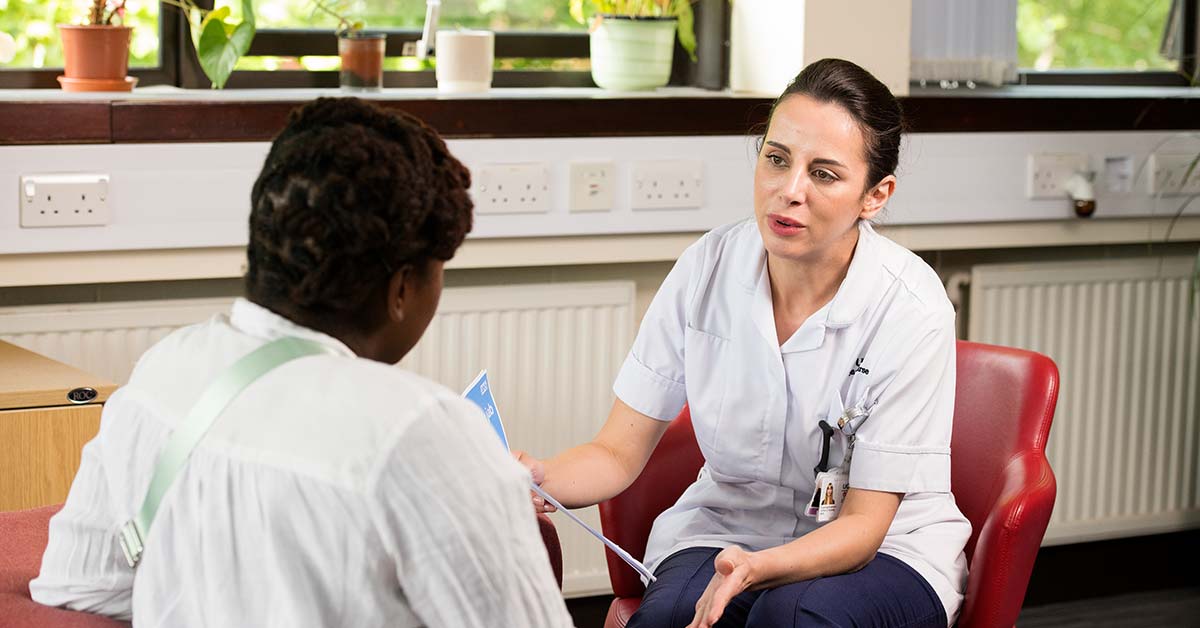Benefit from a student-centred postgraduate programme built to strength both subject-specific and transferable skills.

MSc Applied Public Health
Course details
Delivery: online, part-time
Duration: two years
Start dates: Future start dates to be confirmed.
Fees: £8,549 (flexible payment plans available)
Course overview
The field of public health is evolving at an unprecedented rate. Now, more than ever, public health organisations are looking for professionals who can offer a unique range of knowledge, skills, and perspectives.
Our online, part-time MSc Applied Public Health has been designed to help you develop the skills needed to meet these needs with confidence. The course covers a range of disciplines, including health protection, epidemiology, media and communication, and more.
You can also look forward to understanding interagency and interprofessional ways of working – from collaboration and partnership development to resource management and inclusive thinking.
We’ll support you in learning how to apply your studies to the real world as well, by exploring the appropriate tools, techniques and evidence-based approaches.
Plus, through our intuitive, mobile-friendly virtual learning platform, you can earn your postgraduate degree from home or on the move.
Why study with us?
Student-centred
Experienced team
Gain insights from our experienced course delivery team via live webinars that can be watched back at any time, along with regular feedback and assessments.
Professional growth
Receive resources to sharpen your independent learning, allowing you to continue your own professional growth even after graduation.
Learning outcomes
This programme’s aim is to help you effectively take on the often nuanced and complex challenges connected to the health of any population – such as the environment, housing, media, and education.
Upon completing the MSc Applied Public Health, you’ll be able to:
-
Effectively plan, conduct, and analyse research in public health, as well as apply theoretical perspectives to real-world issues
-
Understand key factors of health, inequalities in health, and the importance of addressing these with evidence-based approaches – including epidemiological and statistical methods
-
Identify ways to assess, protect, and improve the health of populations, from evaluating health initiatives to appropriately employing the media to share information
Module overview
This introductory module provides a broad overview of important research principles to help you locate, analyse, and utilise published studies when addressing real-world challenges.
You’ll also learn how to formulate researchable questions, think critically about the mechanisms of research governance, appraise the significance of alternative epistemological positions, and more.
We’ll support you in developing a critical, analytical, and integrative understanding of theory, policy, and practice in relation to healthy and sustainable settings.
Your studies will encourage you to examine factors that influence health, wellbeing, and sustainability across a variety of contexts. You’ll understand how public health professionals can help determine the health assets of communities, uncover health needs, and reduce health inequalities.
During this phase of your course, you’ll gain an advanced framework for determining population health and wellbeing.
We’ll cover how to summarise and interpret relevant data to inform strategic planning to drive changes in service delivery and health care policy. You’ll also learn how to communicate information on population health status, health inequalities, and evidence of effectiveness.
This module will further your understanding of the transnational nature of health issues and the ways in which social determinants of health transcend national boundaries.
Alongside exploring the key elements of health protection, you’ll develop your health protection capacity in risk assessment, management, and communication by analysing risk reduction case studies to inform your approach to project planning, policy development, and public education.
Your final module will challenge you to synthesise the knowledge you’ve gained during your studies with your professional and clinical experience.
You’ll produce an independently conducted research dissertation – or an equivalent alternative – focused on your professional and/or philosophical interests. With support from an assigned supervisor, you’ll choose research methodologies, obtain ethical approval, and self-direct your project to successful completion.
Entry requirements
-
You must hold at least a 2:2 honours degree or its equivalent
-
Applicants with professional qualifications and relevant work experience will also be considered for the course on the basis of interview and portfolio submission
-
If you don’t speak English as a first language you will need to hold a minimum IELTS score of 6.5 or an accepted equivalent.
Unsure if you have the right qualifications or experience? Don’t worry – we know it’s impossible to measure everyone’s capabilities in the same way.
Why study this course?
Hear from Course Leader, Akua Quao as she discusses why now is an important time for public health, as well as the skillset required to be successful in the field. Want to watch the full recording? Register to gain access.
Read the video transcript on this page.
How we teach
We offer an interactive mix of weekly webinars, forums, and learning activities to keep you engaged and challenged during your studies with us. However, you’ll also be given the freedom and flexibility to access these resources at your own time, to best fit your schedule.
In addition, we’ll provide guidance on how to identify, locate, and use the online material available in the Library. Comprehensive bibliographies are provided for each module, as are guidelines for when you’ll be expected to produce essays, projects, and your dissertation.
As this is a postgraduate course, you’ll also be expected to demonstrate evidence of independently acquired knowledge. We’ll help you familiarise yourself with literature searching techniques to help you in this process.

Hear from a student
"This course will help me to increase my knowledge in the medical field, including qualitative and quantitative research methodology, which is very important in the industry."
- Segun Akindokun, MSc Applied Public Health
How you're assessed
Throughout the programme there will be a combination of formative and summative assessments. There are no exams.
Formative assessments will typically involve tutor feedback on your presentations and other projects. Summative assessments will typically take place through essays and assessed coursework – your dissertation being one example.
Careers and opportunities
Upon graduating with your MSc in Applied Public Health, you’ll hold the specialist knowledge needed to build a meaningful and lasting career in the field.
You’ll have also developed a range of transferable skills that will make you an appealing hire for any employer, from problem solving to time management.
Combined, these capabilities will ensure that you’re well-equipped to seize opportunities across a range of areas – including work within academic institutions, your local or national government, and third sector organisations.
A few examples of the roles secured by students who graduated from the on-campus equivalent of this programme include:
-
Health Promotion Practitioner
-
Mental Health Researcher
-
Primary Care Modernisation Manager
-
Substance Misuse Worker
-
National Immunisation Strategy Adviser
-
University Coordinator for Student Wellbeing
-
Public Health Intelligence Specialist
-
Further Education Lecturer
Your degree also opens you up to the prospect of pursuing a PhD; in many countries an MSc is an essential requirement for study at doctoral level.
Check out our MSc Applied Public Health careers page for more information on potential career paths open to you.
Want to learn more?

Hear from a student
“From the beginning it’s been clear that UCLan has a really effective system for supporting online students.”
- Sophie Liebe-Kreutzner, MSc in Human Resource Management
More resources
See all resources
A guide to public health issues
From obesity to air pollution, read our guide to public health issues, including how they’re dealt...
Read the story
What does a Public Health Consultant do?
Discover the key responsibilities of a Public Health Consultant and understand their role in...
Read the story
What is public health policy and why is it important?
Get a definition of public health policy and discover the important role it plays in addressing...
Read the story



